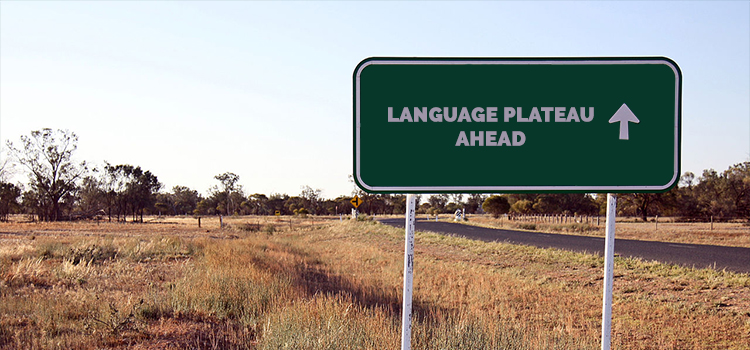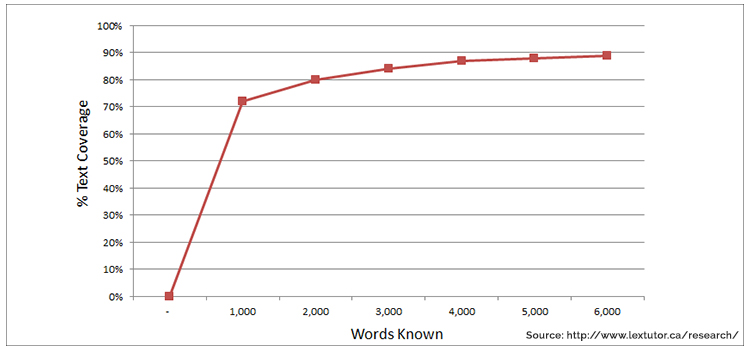
Many language learners share the common experience of reaching a point in their studies where they cease feeling that they are improving. At lower levels, as key words and grammatical concepts are incorporated, improvement is noticeably apparent and learners frequently feel a sense of achievement. However, at higher levels, when the basics have been mastered, the same feelings of satisfaction are not as clear in spite of the amount of new information one has taken in. Commonly referred to by many as ‘hitting a plateau’, this is a leading cause of people giving up on their language studies. There are many ways to approach or overcome this plateau, one of which is to shift your focus to vocabulary (How to expand your vocabulary).
Why do so many learners cease feeling like they are becoming more proficient at higher levels? The graph shows the relationship between the number of words a learner knows and what percentage of any given article that they should be able to understand with those words (text coverage). The most dramatic rise in coverage occurs from 0 to 2000 words, by which time students can understand 80% of a text. Beyond 2000, the rate of improvement starts to level out and only increases slightly with each thousand lexical items acquired. Even at 6000 words, coverage still does not reached 90%. In my personal experience, there was definitely a point in my studies where I knew enough vocabulary to express even complex ideas using basic vocabulary and going beyond that seemed fruitless.

As a language teacher, when the occasional student becomes frustrated with their progress, simply pointing out the above facts may be enough to comfort them. Others may be looking for something new to replicate some of the feelings they had when they first started learning a language and it is at this stage that they may need to re-invent how they approach their lexical studies.
As you utilize acquired language in your day-to-day business, you will encounter new situations where you perhaps do not have ‘the right set of vocabulary’. To illustrate this point, imagine your car breaks down and you have got along just fine without knowing any words related to parts of a vehicle. Suddenly, there is a gap in your knowledge that needs filling. These gaps can be likened to ‘potholes’ in your otherwise stable plateau. Instead of relying on those basic words to get by, use this ‘pothole’ to expand your vocabulary bank thematically; what words will you need? What words might you hear? Are there any regional differences? There are many other uncommon situations (going to the doctor/dentist, fines/infringements, etc.) in which we may not have the necessary words and this necessity begets learning, often with a much higher retention rate.
In conclusion, there is more than one way to skin a cat and the effort you put into studying vocabulary can make the difference in breaking free from your language plateau. Encountering ‘potholes’ in your lexical resource should be viewed as a learning opportunity to having a more complete linguistic knowledge.